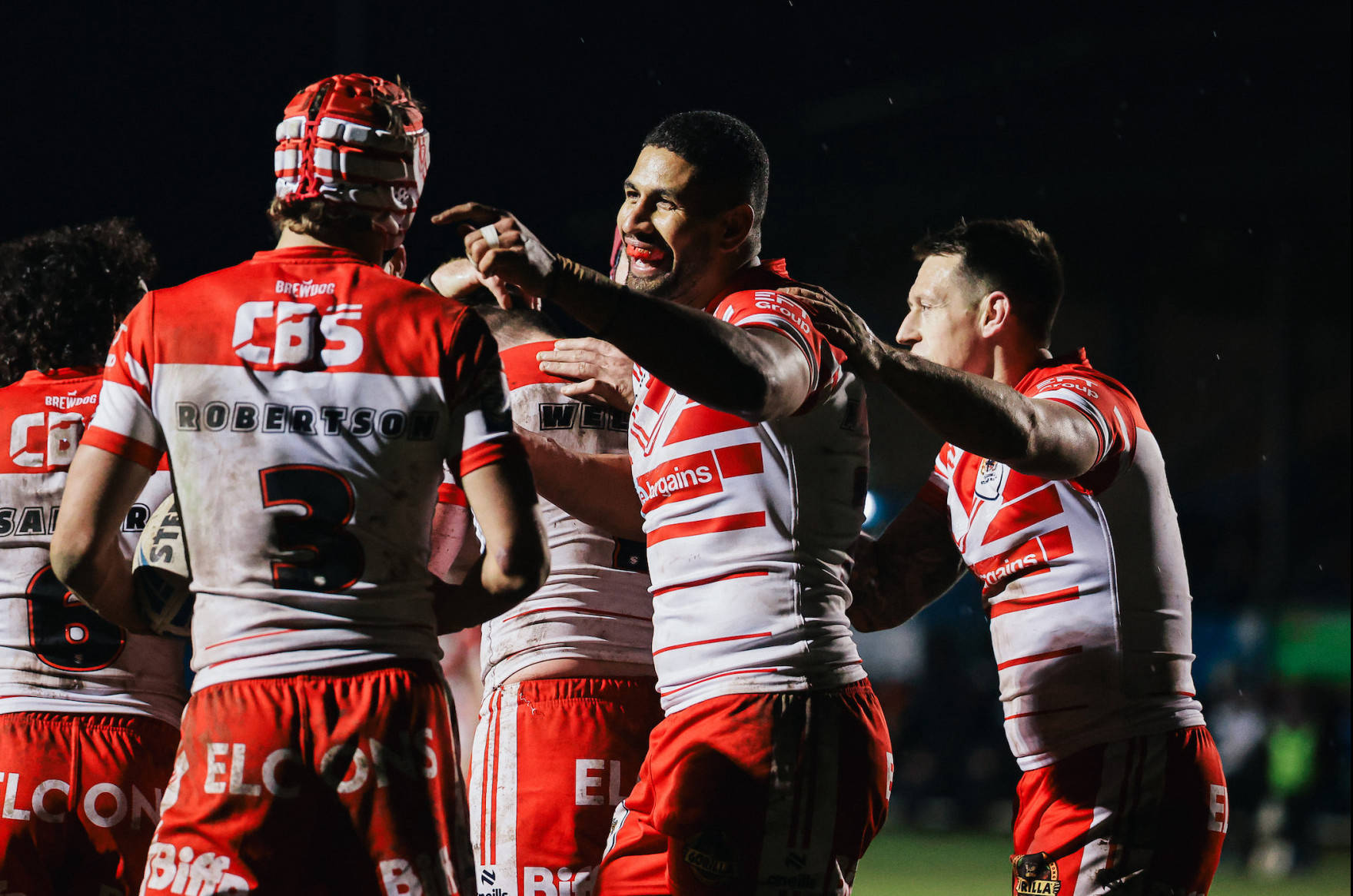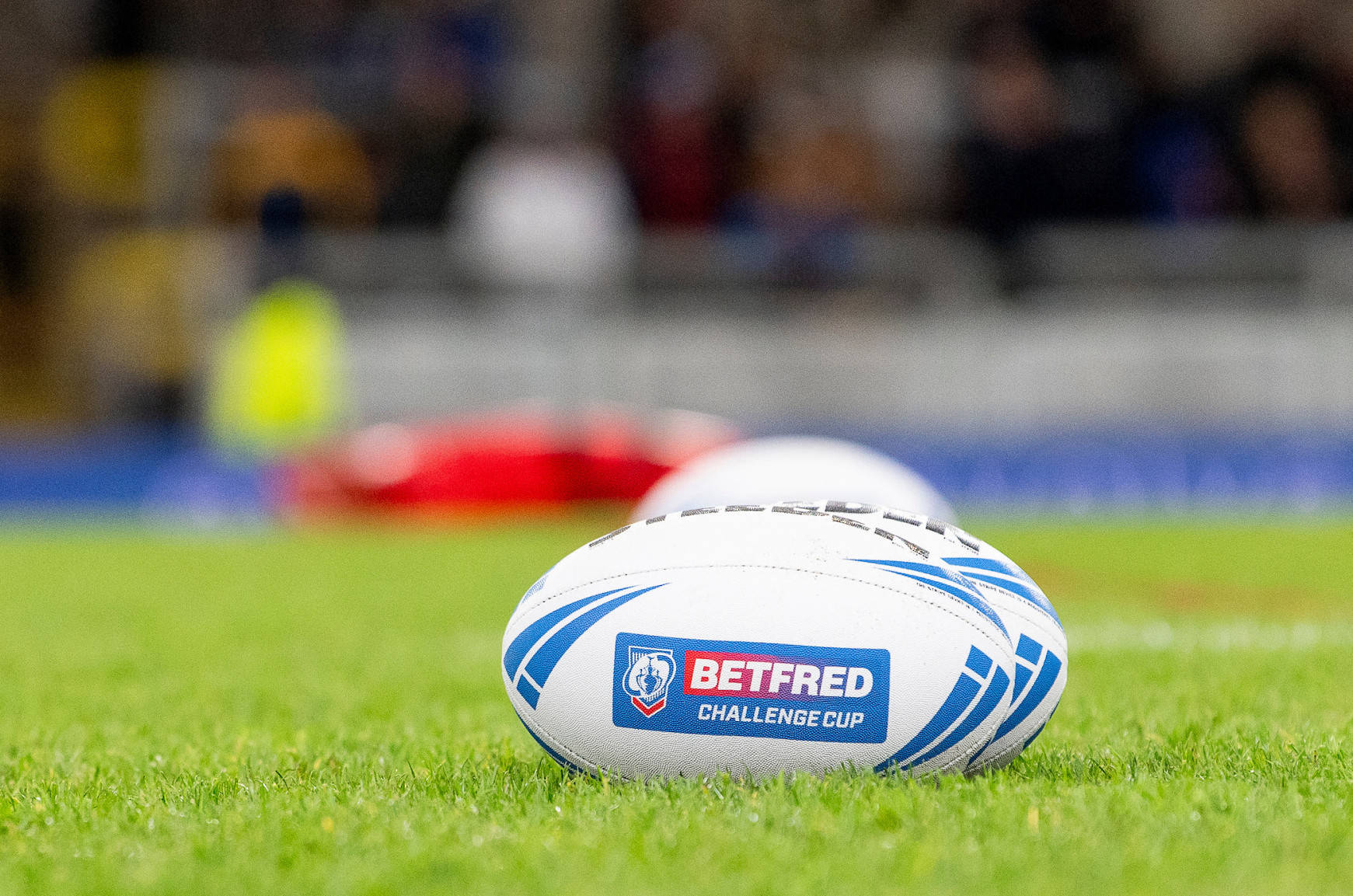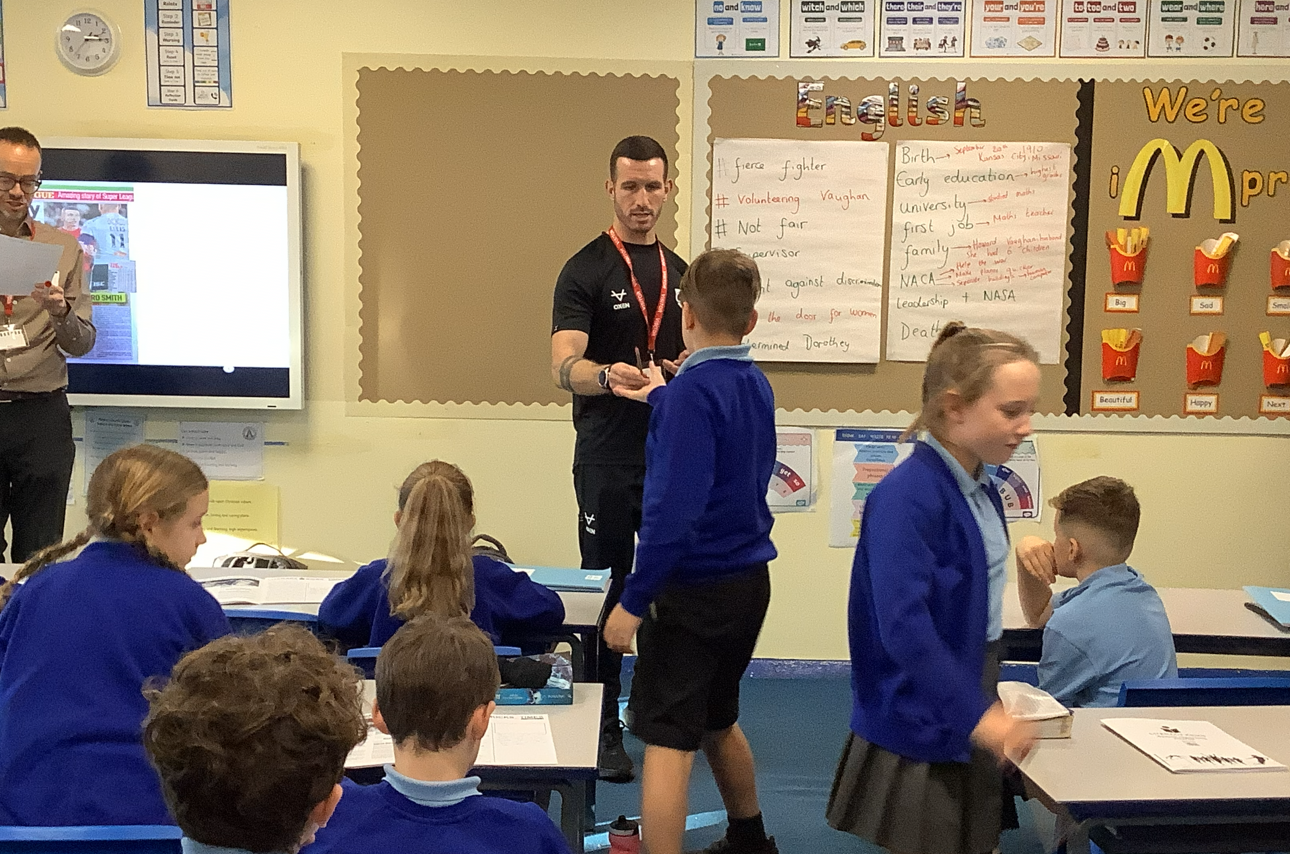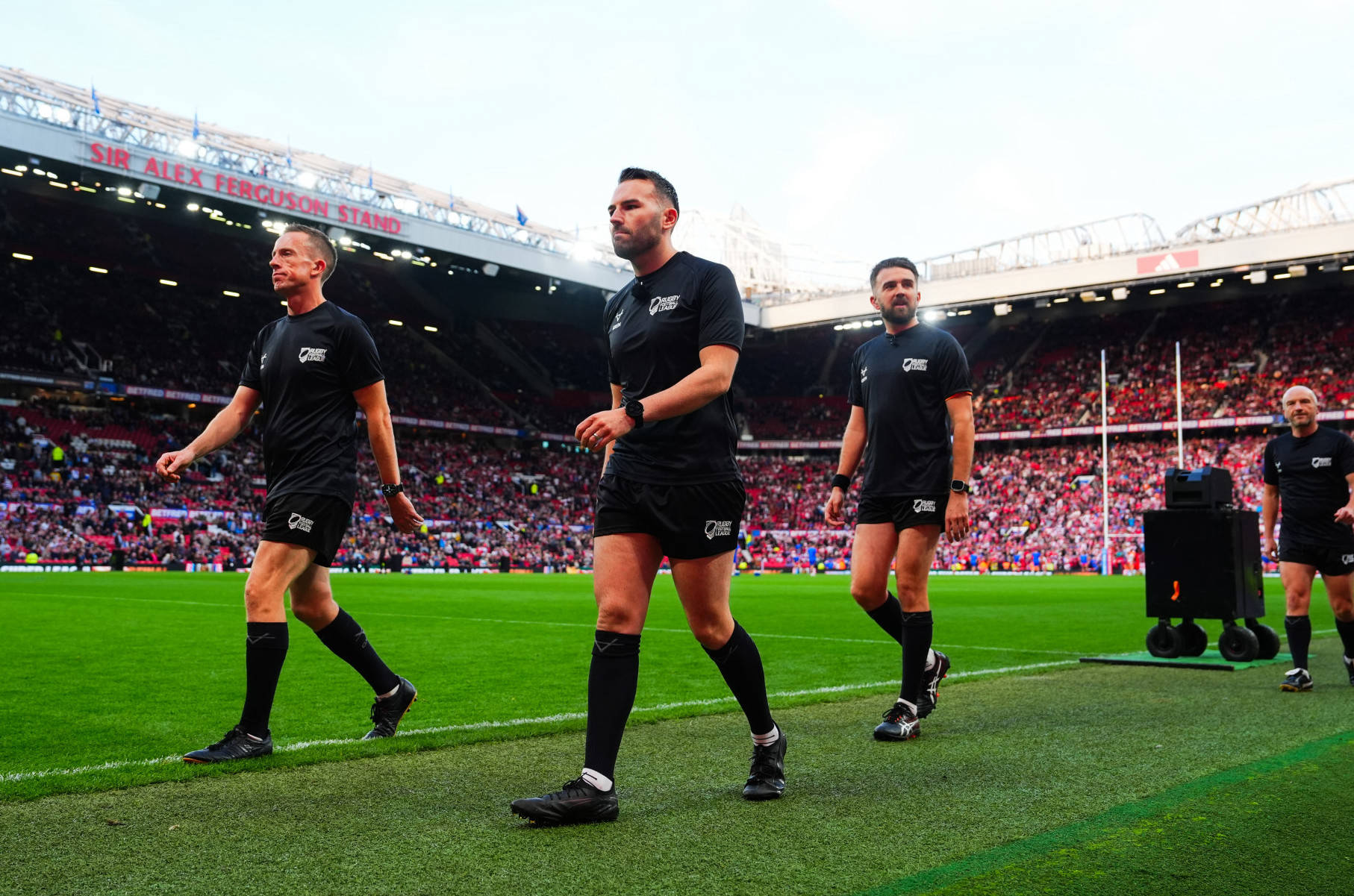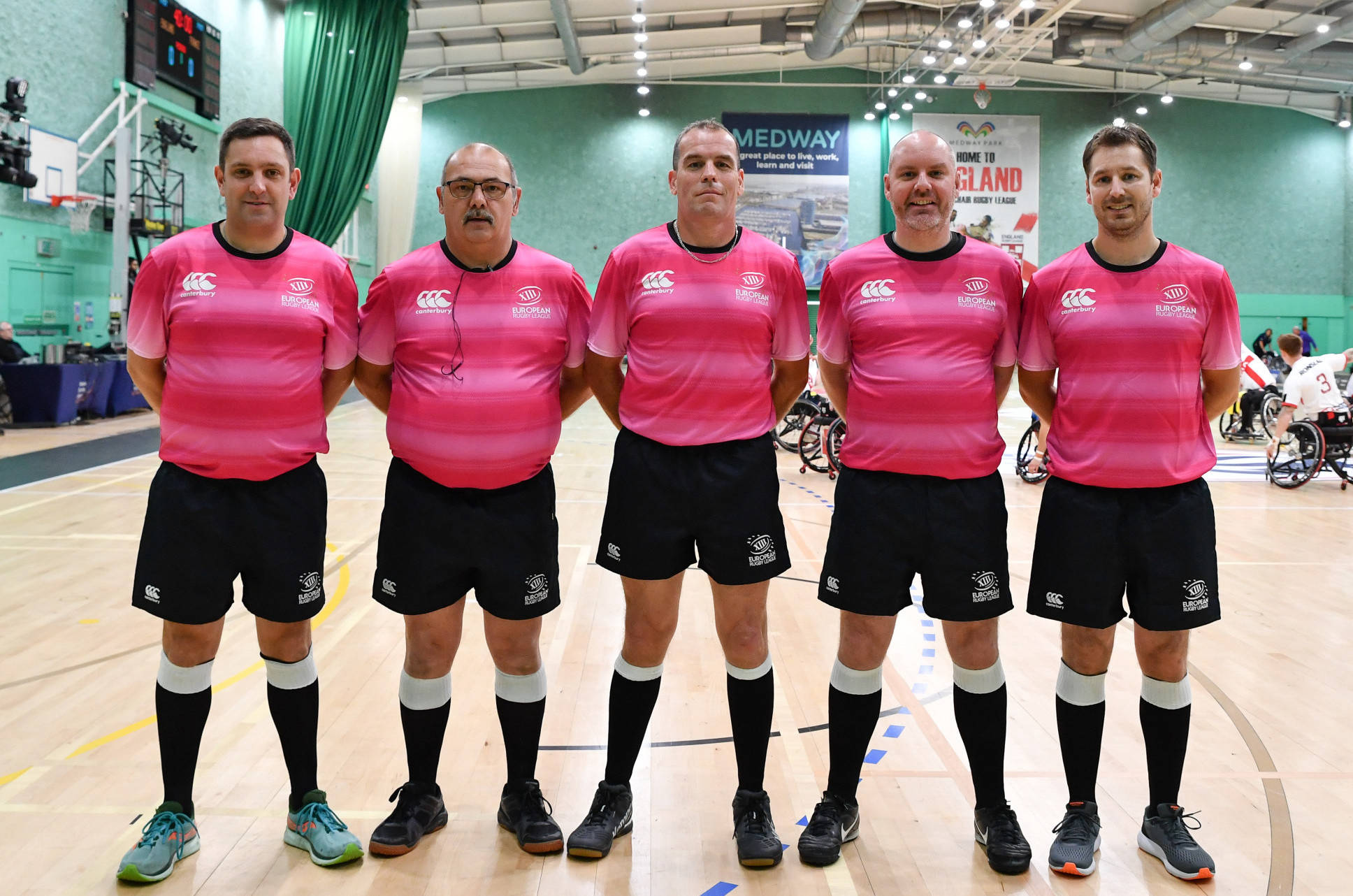
Steve Abel, from Golborne in Warrington, has been refereeing Rugby League for 26 years, dedicating the last 18 years of his career to officiating the wheelchair game.
The 57-year-old customs and excise officer and former teacher believes that communication is key to getting the best out of the players and is so passionate about refereeing that his wife, son and daughter have also all taken up the whistle.
Alongside our partners at ACME Whistles, we were able to catch up with Steve and find out about his rugby career so far and discover why it’s a particularly exciting time for the wheelchair game.
“I started out as a coach when my son began playing rugby and went on to qualify as an official in 1990,” he said.
“I spent a year doing under 13s and under 14s before moving right up to open age and I was asked if I’d be interested in the Summer Conference which is what it was called back then.
“I got nominated as ‘referee of the year’ in my first year and received the award from Nigel Wood which was amazing.”
But his foray into rugby started well before that.
“I moved to the Northwest in 1974 and had played Rugby Union a couple of times prior to that,” he explains.
“My dad was a pit manager at Bickershaw, and Stan Wall was one of the lamp room supervisors. I asked my dad if anyone at work had kids who played rugby and I meant Rugby Union, but my dad came home and said he’d been talking to Stan Wall and that he refereed Rugby League so I ended up playing with Leigh Miners first and then Leigh East for a number of years. I even had a trial with Wigan.
“If I’d known then what I know now about Rugby League, I might not have joined the forces. I got made redundant, so I joined the Grenadier Guards where I also played a bit of Rugby League.
“Being a player helped me through my refereeing days because I knew what was expected of a match official. And when I became a match official I knew what to expect from the players.”
In 2004 Steve was asked if he would referee wheelchair games.
“My first response was that I didn’t think I could referee Rugby League in a wheelchair,” he admits.
“But when they clarified that it was the players that are in the wheelchairs and not the referees, I said I’d give it a go. My son and I went down to a training session and the rest is history. We’re both now qualified wheelchair match officials.”
When asked about the difference between wheelchair games and running games, Steve goes on to say, “The only differences are that there are no scrums in the wheelchair game and you have an attack referee and a defense referee.
“The attack referee deals with all the tackles, the knock-ons, forward passes in-touch.
“The defense referee keeps the defensive line on-side and helps with in-touches and forward passes if you don’t see them.”
In the wheelchair game the players have tags on their shoulders. When the players are going for the tackle they have to take the tag of the opposition’s sleeve completing the tackle. They then set up, with a ‘marker’ in front of them and they plat the ball by tapping it on the floor or, if they have limited movement, they tap the wheel.
“There’s not a great deal of difference in the laws,” adds Steve.
“Whatever they can do in the running game, they can do in the wheelchair game. Kicking is done with the fist and kick offs are done off a tee which is the same height as the pushing wheel. Apart from the scrums, there’s nothing different. Everything has just been adapted for wheelchair players.”
As a wheelchair referee, Steve explains that you have to be more aware of what’s going on.
He said: “That’s not being disrespectful to refs of the running game because I’ve been there myself. However, in the wheelchair game you have to be more aware due to the impact, the tackles and even when they’re scoring the try because you’ve got that many chairs around the ball that you’ve got to ensure you make the right decision for the grounding.
“We don’t have video refs so you’re always looking at the ball, the position of the chair and whether they’ve got tags on their shoulders so you have to be switched on.”
Up until 15th March this year Steve had been doing the admin, the fixtures, the appointments and developing the match officials so refereeing went on the back burner for a bit due to time constraints and because wheelchair games are located all over the UK.
The chairman of Leigh society reflects on the first time he ever took up the whistle on the pitch and said: “The first game I refereed was an U-9s game which was rather amusing because it was like bees round a honey pot.
“So, instead of being spread out to stop the opposition running through, wherever the ball was, the players were too so it became more of a coaching session from me, rather than me actually refereeing.
“The first wheelchair game was England v France down in Kent. I received the telephone call on the Thursday saying a match official had dropped out and did I fancy doing it so I went down to Medway, stopped overnight and refereed the first of many England v France wheelchair games.
“That was a slightly difficult game because the French play slightly differently to what we do over here. There were only 3 members of the French time that could speak English so the communication was difficult, but you overcome that with signals and body language.”
Steve maintains that communication is key to being a good referee. He also believes in giving the players the credit they deserve.
“Even if they’ve done something wrong, I’ll talk to them because I’m not one for blowing the whistle all the time,” he explains.
“I try and keep the game moving and keep everybody on the field.”
A career highlight for Steve was in this year’s wheelchair World Cup, held in November.
“My daughter was a match official on the court and my son was the assistant coach to Scotland. Having them both working alongside me at the World Cup was a proud dad moment.”
When asked how refereeing has changed throughout his career, Steve said:
“There is a lot more respect for the refs. The people in the development side of the RFL have got a better understanding of what referees go through and need – in both the wheelchair and the running game.
“In my 18 years of refereeing the wheelchair games we have only ever had 3 red cards and we tend to keep more match officials because of the respect and discipline within these games.
“If a match official has any issues there is always someone there to support and help you which has made life a lot better and a lot easier. It’s just a wonderful support network within the RFL.”
Steve highly recommends refereeing and actively encourages people to pick up the whistle which is why he is a development officer for both the running game and the wheelchair game.
It is clear that the key reward of refereeing for Steve is seeing the players enjoy the game. If one person comes and shakes his hand after a game and thanks him then he knows he has done his job properly and facilitated that player enjoyment.
“People enjoy playing Rugby League games and the respect that a match official gets both in our code and in the union is greater than in football.
“If you enjoy Rugby League and you want to be part of it, but you don’t want to be a player, become a match official because it’s enjoyable, exciting and it can take you all over the world.
“You can stop at grass roots, you can stop at open age, you can stop at National Conference, or you can push yourself and become a professional referee. The choice is yours.
“I’ve been to Spain, France, all over the UK and the opportunities have been there for ‘do better’. I’ve worked with the likes of Stuart Cummings, Karl Kirkpatrick, Steve Ganson when they’ve been officiating. There’s always somebody to help you as well so if you fancy it, give it a go.”
Steve is currently prepping for the 2023 season to kick off - making sure they have the games ready and enough match officials to referee the games. The Celtic Cup is set to be hosted in Ireland in 2023 which will be a first in wheelchair history having never been played there before.

